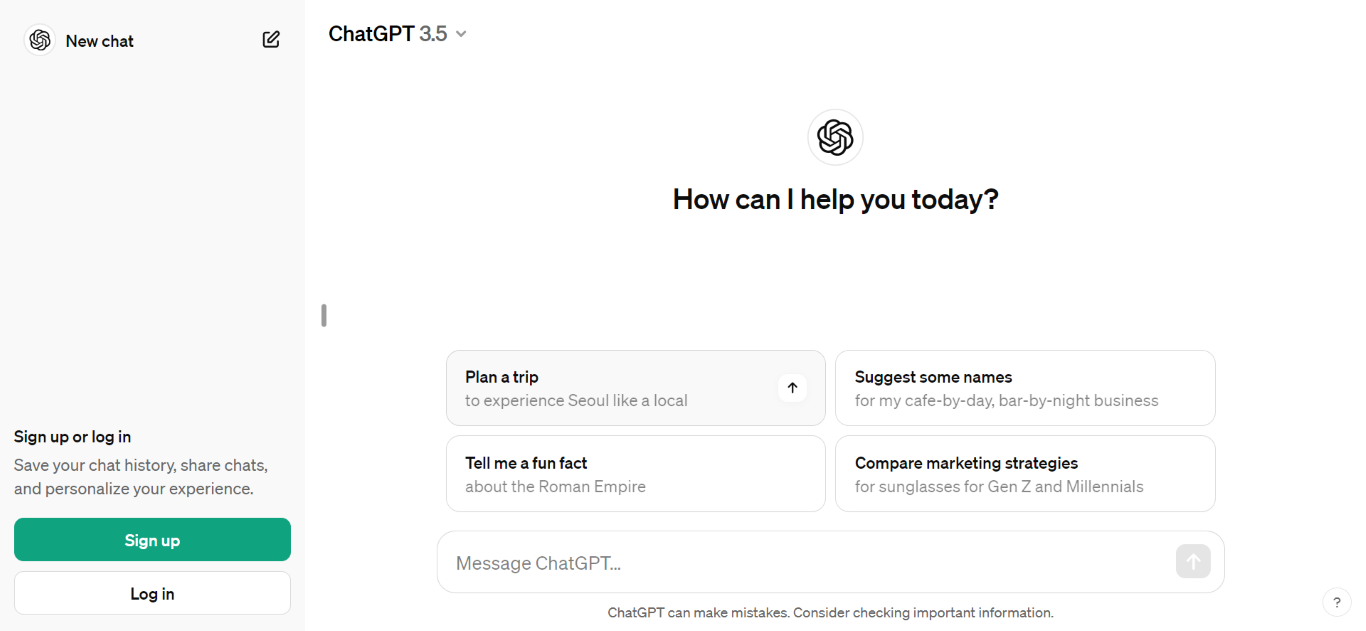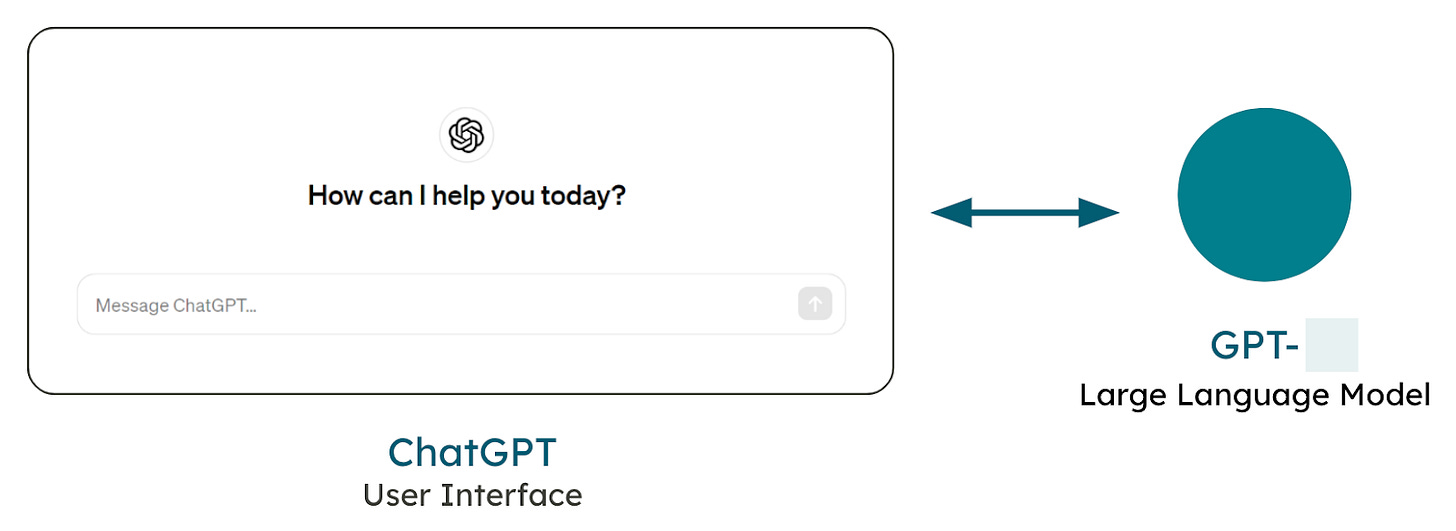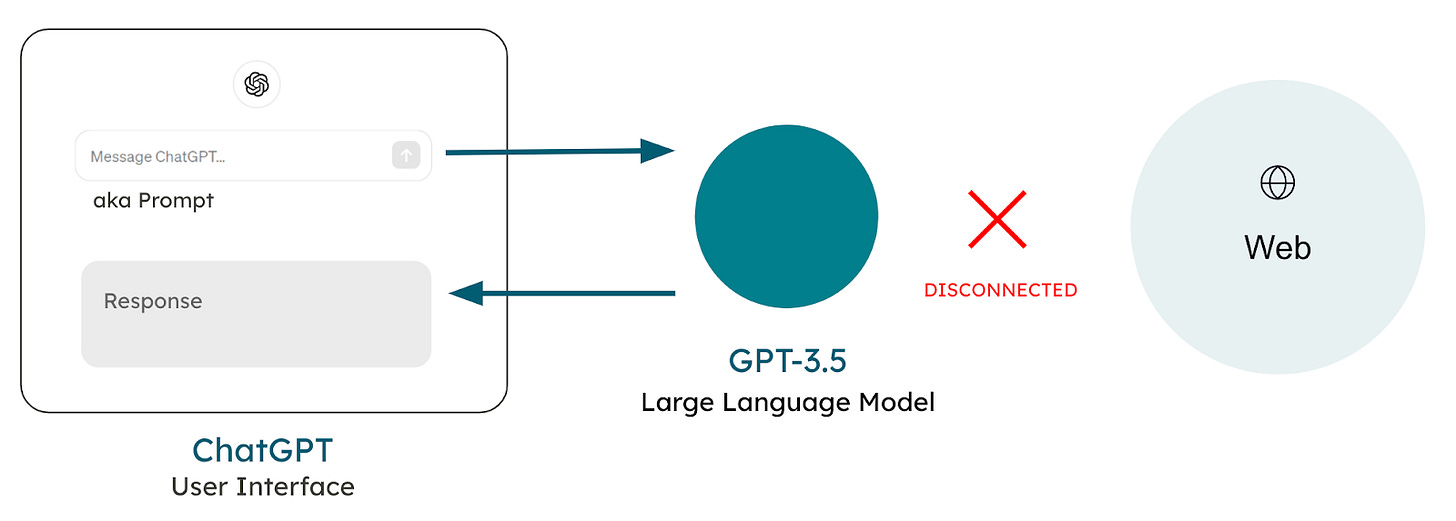Surprise!? ChatGPT Isn’t a Search Engine
As of today, nearly 1 in 4 Americans have tried ChatGPT—23%, to be precise, according to Pew Research Center. Among them, I’d bet most have attempted to search for information using ChatGPT.
The result? If you’ve spent enough time playing around, you’ll realize that the answers can be wildly inaccurate, yet ChatGPT will deliver them with absolute confidence.
That alone should be enough to make people think twice before using ChatGPT—or any chatbot—as a go-to to get answers to their questions.
However, I’ve been in enough conversations to know that, even almost two years after its launch, many are still treating ChatGPT like a search engine.
This post isn’t a deep technical breakdown, but rather a quick rundown of why ChatGPT wasn’t built for your typical search use case.
Today’s Search Experience
We search for answers every day—multiple times a day, in fact. Google built an empire on making those answers more accessible than anyone before.
But whether it’s Google or other alternatives, both before and after its rise, the core method has been the same: build an index of links and serve up the most relevant ones when a user asks a question. The real difference lies in the algorithms they use to rank and index that content.
So, what does this mean for you, the user? Simply put: the answer to your question will always be at least one click away from the interface you use to ask it.
Enter ChatGPT’s Experience
Then, in November 2022, ChatGPT arrived. The interface was simple and familiar, with its welcoming question: “How can I help you today?”
Without much more context, it’s easy to see how you might mistake it for a new kind of search engine. However, ChatGPT is not a Google alternative!
How Does ChatGPT Work?
Let’s keep it simple. When ChatGPT was first released, it had two main components:
A user interface, named ChatGPT
A model, GPT-3.5, which was the initial LLM powering ChatGPT
The real brain behind the operation is this Large Language Model (LLM).
LLMs are specialized algorithms trained on very large datasets with unique skills to perform tasks such as content generation, content summarization, translation, and more.
Model Training
You don’t need to understand the nitty-gritty of model training, but here’s the key thing to remember: the model is trained on publicly accessible (web) data, and there’s a cutoff date. For instance, GPT-3.5 was trained on data available before June 2021.
Once training is complete, ChatGPT answers questions using only the model's “knowledge”—completely disconnected from the web!
Following a recent update, you will notice an evolution. Occasionally, ChatGPT tells you it’s “searching the web.” It kicks in either when the system decides it’s necessary or when you specifically ask it to. Funny enough, ChatGPT uses a traditional search engine (Bing) to find the answer!
Temperature as Creativity
With Google, you know that asking the same question twice (back-to-back) will return the same ranked links. But have you noticed that when you ask ChatGPT the same question twice, the answers aren’t exactly the same?
That’s thanks to a little something on the model called “temperature.” It’s a technical term, but think of it as a creativity dial. The closer the value is to zero (0), the more likely your answer will be consistent when asked repeatedly. OpenAI hasn’t disclosed the exact default temperature for ChatGPT, but it’s safe to assume it’s closer to one (1), which leans towards more creative responses.
This makes ChatGPT fantastic for tasks like content generation—brainstorming ideas, for example—but much less reliable when you’re... well, trying to search for information.
Search Revolution is on the Way
Hopefully, this sheds some light on why using ChatGPT to search for information can be a risky move.
💡 But that doesn’t mean generative AI isn’t about to shake up the search game—in fact, quite the opposite! Perplexity is one great example of a company reimagining how answers are delivered, focusing on providing relevant responses sourced from the open web.
Google–pressured like never before on their roots–has also jumped on the bandwagon, reworking how search results are presented, using its Gemini models.
And what about OpenAI? Well, in July 2024, they announced SearchGPT, which promises to be much better suited for this task than ChatGPT.
All these solutions are still in their early stages, so it’s wise to stay cautious about the answers they provide. But there’s plenty to be excited about in terms of the opportunities ahead.
🔑 Until then, just like you wouldn’t trust everything you read or hear, don’t blindly trust everything being generated!







